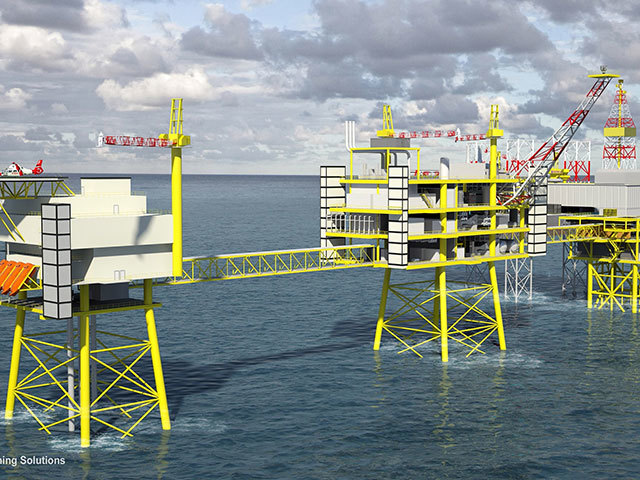
Operators drilling difficult high-pressure, high-temperature oil fields in the North Sea are pushing the Treasury to improve a tax break to make production more affordable.
Currently, Maersk Oil and BG Group are developing fields in the central North Sea which can have reservoirs with temperatures up to 500 degrees Fahrenheit and with “extreme” high pressure, known as ultra-high pressure, high temperature (uHPHT) fields.
The Danish-owned oil explorer is behind the £3billion Culzean gas discovery, while the UK-based BG is developing the £3billion Jackdaw field nearby.
Meanwhile, French giant Total pioneered uHPHT in the North Sea when it began production at the Elgin Franklin complex in 2001.
Philippe Guys, managing director of Total E&P UK admitted yesterday the difficulties developers of these fields faced. In 2012, a leak on the Elgin platform caused 238 workers to be evacuated, forcing a costly shutdown on the field for over a year.
Guys said the “dramatic” incident was the result of a “combination of factors not seen before” when a production casing ruptured. Nevertheless, he said the field’s expected life has been extended to 32 years from its initial 22 years. The firm will invest a further £1billion in the project to extend infill wells on West Franklin and Elgin B, which are due for first gas at the end of the year.
In March George Osborne unveiled the u-HPHT fields allowance, promising that for every £1billion a company spends on such projects it will get at least £200million in tax relief.
The move was welcomed by industry as a new era of consultation between the industry and the Treasury, and meant to restore confidence after previous tax raids had soured relations.
Andy Samuel, managing director Europe E&P, BG Group, was also at yesterday’s event hosted by Oil and Gas UK, and said BG Group was in discussions with representatives of the Department of Energy and Climate Change consulting on the tax changes.
He said there was still “work to do to ensure investment conditions are met for the variety of companies looking to invest”. This includes extended the tax relief to 75% to bring it in line with onshore gas, and extending the ring fenced expenditure supplement from six years to ten years.
Michael Tholen, Economics & Commercial Director, Oil & Gas UK said he expects the Treasury to publish a formal consultation document at the end of June or the start of July.
“We’ve got some not-bad answers so far,” Tholen said.
“The minimum tax allowance has been given a floor. The question is whether that floor is good enough to get them (uHTHP projects) across the line.”
Recommended for you

